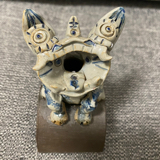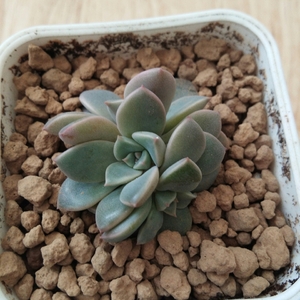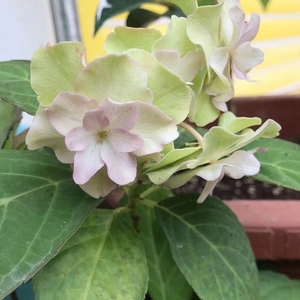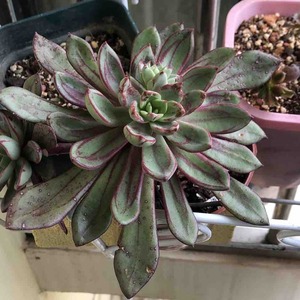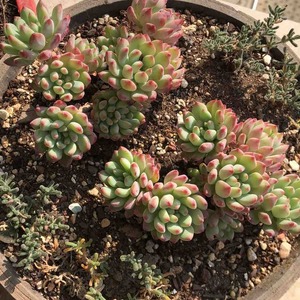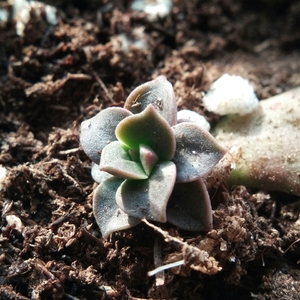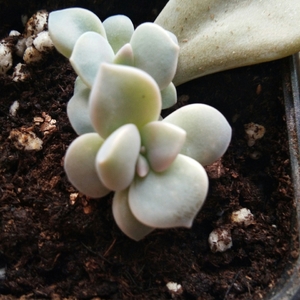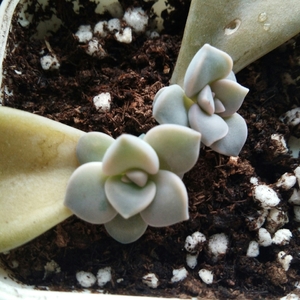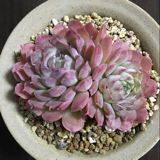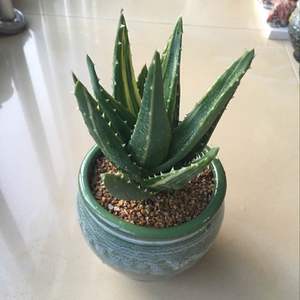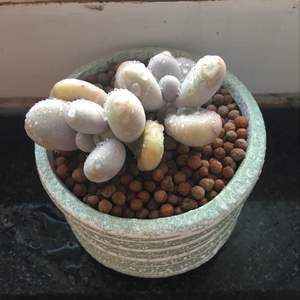文章
ritau
2020年03月24日

Hi, dear Aries!
Aries are born from March 21 to April 19. Represented by the symbol of the ram, Aries are smart, loyal, and impulsive. Their element group is fire, and they share that with Leo and Sagittarius.
Aries are very honest and will always be blunt on what is on their mind. Extremely loyal with a fiery temper, Aries will always inform their significant other when they are upset or disagree. Straightforward and brazen, Aries will do everything to go after the one that they want. However, Aries can be Hot-tempered, impatient, impulsive.
*Famous Aries*
Leonardo da Vinci, Robert Downey Jr., Lady Gaga, Reese Witherspoon.
*Flower*
Thistle

Thistle is the common name of a group of flowering plants characterised by leaves with sharp prickles on the margins, mostly in the family Asteraceae. Prickles can also occur all over the plant – on the stem and on the flat parts of the leaves. These prickles are an adaptation that protects the plant from being eaten by herbivores. Typically, an involucre with a clasping shape similar to a cup or urn subtends each of a thistle's flowerheads.
Thistle flowers are the favourite nectar sources of the pearl-bordered fritillary, small pearl-bordered fritillary, high brown fritillary, and dark green fritillary butterflies. Thistles (and thistle-seed feeders) also provide important sustenance for goldfinches and are strongly favored by many butterflies besides fritillaries such as the monarch, skippers, and the tiger swallowtail[disambiguation needed]. Additionally, hummingbirds will feed on the flowers of the biennial species (which feature large flowers, as compared with the perennial Canada thistle).
Some thistles (for example Cirsium vulgare, native to Eurasia), have been widely introduced outside their native range. Control measures include Trichosirocalus weevils, but a problem with this approach, at least in North America, is that the introduced weevils may affect native thistles at least as much as the desired targets.
Aries are born from March 21 to April 19. Represented by the symbol of the ram, Aries are smart, loyal, and impulsive. Their element group is fire, and they share that with Leo and Sagittarius.
Aries are very honest and will always be blunt on what is on their mind. Extremely loyal with a fiery temper, Aries will always inform their significant other when they are upset or disagree. Straightforward and brazen, Aries will do everything to go after the one that they want. However, Aries can be Hot-tempered, impatient, impulsive.
*Famous Aries*
Leonardo da Vinci, Robert Downey Jr., Lady Gaga, Reese Witherspoon.
*Flower*
Thistle

Thistle is the common name of a group of flowering plants characterised by leaves with sharp prickles on the margins, mostly in the family Asteraceae. Prickles can also occur all over the plant – on the stem and on the flat parts of the leaves. These prickles are an adaptation that protects the plant from being eaten by herbivores. Typically, an involucre with a clasping shape similar to a cup or urn subtends each of a thistle's flowerheads.
Thistle flowers are the favourite nectar sources of the pearl-bordered fritillary, small pearl-bordered fritillary, high brown fritillary, and dark green fritillary butterflies. Thistles (and thistle-seed feeders) also provide important sustenance for goldfinches and are strongly favored by many butterflies besides fritillaries such as the monarch, skippers, and the tiger swallowtail[disambiguation needed]. Additionally, hummingbirds will feed on the flowers of the biennial species (which feature large flowers, as compared with the perennial Canada thistle).
Some thistles (for example Cirsium vulgare, native to Eurasia), have been widely introduced outside their native range. Control measures include Trichosirocalus weevils, but a problem with this approach, at least in North America, is that the introduced weevils may affect native thistles at least as much as the desired targets.
0
0
文章
ritau
2020年03月15日

What is COVID-19?
Accordinng to WHO, Coronaviruses (CoV) are a large family of viruses that cause illness ranging from the common cold to more severe diseases such as Middle East Respiratory Syndrome (MERS-CoV) and Severe Acute Respiratory Syndrome (SARS-CoV).
Coronavirus disease (COVID-19) is a new strain that was discovered in 2019 and has not been previously identified in humans.
Coronaviruses are zoonotic, meaning they are transmitted between animals and people. Detailed investigations found that SARS-CoV was transmitted from civet cats to humans and MERS-CoV from dromedary camels to humans. Several known coronaviruses are circulating in animals that have not yet infected humans.
Common signs of infection include respiratory symptoms, fever, cough, shortness of breath and breathing difficulties. In more severe cases, infection can cause pneumonia, severe acute respiratory syndrome, kidney failure and even death.
Standard recommendations to prevent infection spread include regular hand washing, covering mouth and nose when coughing and sneezing, thoroughly cooking meat and eggs. Avoid close contact with anyone showing symptoms of respiratory illness such as coughing and sneezing.
Some advice to strengthen your personal protection:
1. Avoid going to crowded places.
2. Wear a mask, and throw it (after disinfecting it) before you enter into your house.
3. Wash hands frequently, wash for more than 30 seconds at a time (you can sing a Happy Birthday Song while washing)
4. Cover your nose and mouth with your elbow when you sneeze, remember with the ELBOW.
5. Do exercise, reasonable diet, working and resting regularly and keeping happy mood.

If you have fever, cough and difficulty breathing, seek medical care early
Stay home if you feel unwell. If you have a fever, cough and difficulty breathing, seek medical attention and call in advance. Follow the directions of your local health authority.

Why? National and local authorities will have the most up to date information on the situation in your area. Calling in advance will allow your health care provider to quickly direct you to the right health facility. This will also protect you and help prevent spread of viruses and other infections.
Stay informed and follow advice given by your healthcare provider
Stay informed on the latest developments about COVID-19. Follow advice given by your healthcare provider, your national and local public health authority or your employer on how to protect yourself and others from COVID-19.
Why? National and local authorities will have the most up to date information on whether COVID-19 is spreading in your area. They are best placed to advise on what people in your area should be doing to protect themselves.
Accordinng to WHO, Coronaviruses (CoV) are a large family of viruses that cause illness ranging from the common cold to more severe diseases such as Middle East Respiratory Syndrome (MERS-CoV) and Severe Acute Respiratory Syndrome (SARS-CoV).
Coronavirus disease (COVID-19) is a new strain that was discovered in 2019 and has not been previously identified in humans.
Coronaviruses are zoonotic, meaning they are transmitted between animals and people. Detailed investigations found that SARS-CoV was transmitted from civet cats to humans and MERS-CoV from dromedary camels to humans. Several known coronaviruses are circulating in animals that have not yet infected humans.
Common signs of infection include respiratory symptoms, fever, cough, shortness of breath and breathing difficulties. In more severe cases, infection can cause pneumonia, severe acute respiratory syndrome, kidney failure and even death.
Standard recommendations to prevent infection spread include regular hand washing, covering mouth and nose when coughing and sneezing, thoroughly cooking meat and eggs. Avoid close contact with anyone showing symptoms of respiratory illness such as coughing and sneezing.
Some advice to strengthen your personal protection:
1. Avoid going to crowded places.
2. Wear a mask, and throw it (after disinfecting it) before you enter into your house.
3. Wash hands frequently, wash for more than 30 seconds at a time (you can sing a Happy Birthday Song while washing)
4. Cover your nose and mouth with your elbow when you sneeze, remember with the ELBOW.
5. Do exercise, reasonable diet, working and resting regularly and keeping happy mood.

If you have fever, cough and difficulty breathing, seek medical care early
Stay home if you feel unwell. If you have a fever, cough and difficulty breathing, seek medical attention and call in advance. Follow the directions of your local health authority.

Why? National and local authorities will have the most up to date information on the situation in your area. Calling in advance will allow your health care provider to quickly direct you to the right health facility. This will also protect you and help prevent spread of viruses and other infections.
Stay informed and follow advice given by your healthcare provider
Stay informed on the latest developments about COVID-19. Follow advice given by your healthcare provider, your national and local public health authority or your employer on how to protect yourself and others from COVID-19.
Why? National and local authorities will have the most up to date information on whether COVID-19 is spreading in your area. They are best placed to advise on what people in your area should be doing to protect themselves.
0
0


